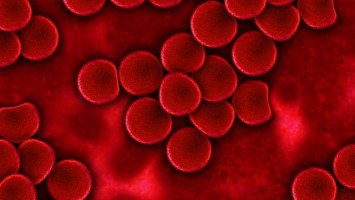
The treatment of acute lymphoblastic leukaemia in adults is extremely complex, lengthy and very stressful for patients.
Compared to other types of cancer in adults, ALL is relatively rare, as a result of which its treatment in Europe has been organised by multicenter study groups for decades.
To achieve the greatest possible scientific impact, several medical institutions simultaneously conduct research on optimising and systematically developing therapy algorithms.
The most important instrument for improving diagnostics and therapy is prospective academic studies, i.e. studies based on a predefined question that examine the effectiveness of a treatment method, and which are planned independently of the pharmaceutical industry.
In Germany, this task has been carried out for decades by the German Multicenter Study Group for Adult ALL (GMALL) – one of the world's largest study groups for this type of cancer, based at Frankfurt University Hospital. Under the leadership of Dr. Nicola Gökbuget, Senior Physician at the University Hospital’s Medical Clinic 2, leading European experts for adult ALL have now drawn up consensus recommendations, for the first time bundling European expertise in one guideline.
The European LeukemiaNet (ELN) published its findings as a two-part special report in late January and early February 2024 in the renowned US journal Blood.
Strengthening the European perspective
"Knowledge about the disease biology and treatment options for ALL in adults is increasing exponentially," explains Dr. Gökbuget, first author of the reference recommendation and GMALL study group coordinator for more than a decade. "Given the unique constellations in the European healthcare systems, it was important for us to summarise the current state of knowledge, especially from a European perspective." The detailed ELN recommendations are intended not only to provide interested doctors with answers to the most important questions relating to patient management, but also to help standardise the reporting of clinical trials.
Too extensive for just one publication
Due to their large scope and complexity, the treatment recommendations were published in two parts, the first of which deals with ALL diagnostics, prognostic factors and response assessments, and also defines standards for classification and evaluation in clinical trials.
The second part covers the entire management, and ranges from induction and consolidation therapy to the use of new substances, stem cell transplantation, relapse therapy, the treatment of special ALL subgroups, late effects of therapy, and supportive treatment. In addition to a detailed evaluation of the available data, the recommendations also contain expert assessments of issues currently discussed.
Based on years of systematic work, working groups from eight European countries have contributed to significantly improving the prognosis of adult patients suffering from ALL – a path the European consortium intends to continue to follow to benefit all those affected.
Source: Goethe University Frankfurt